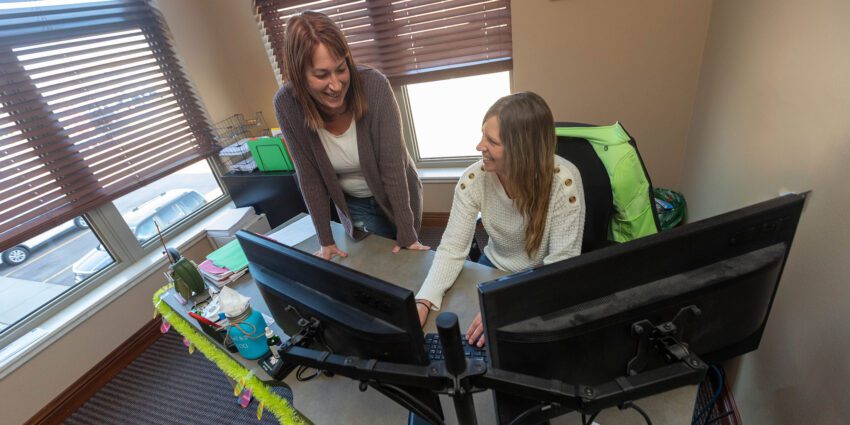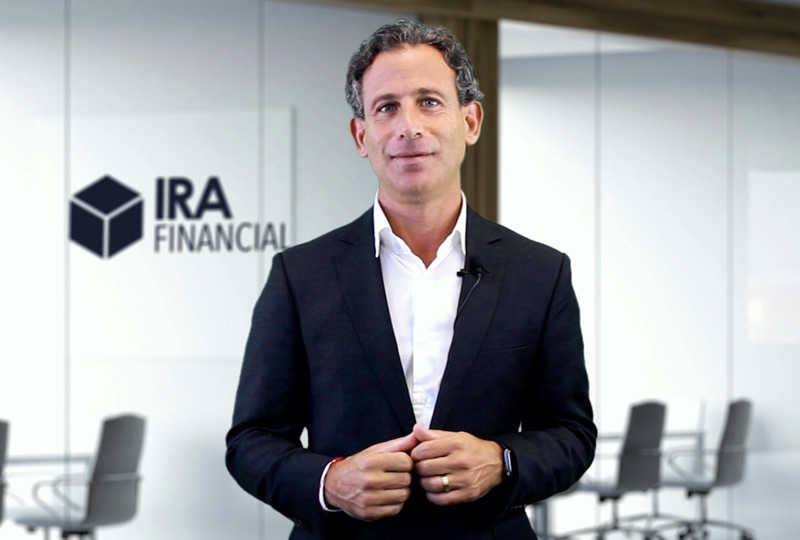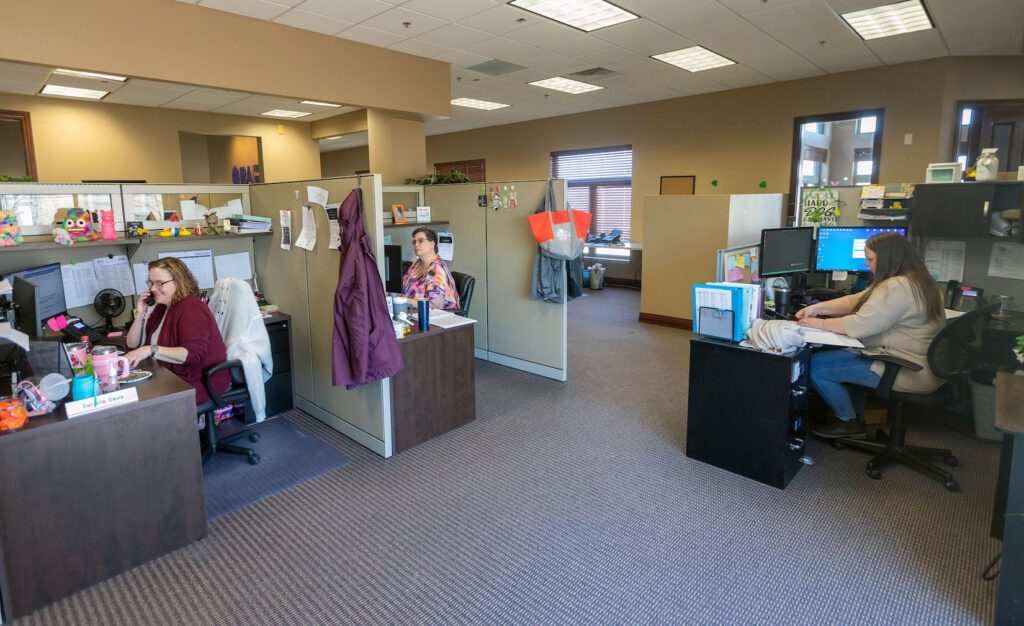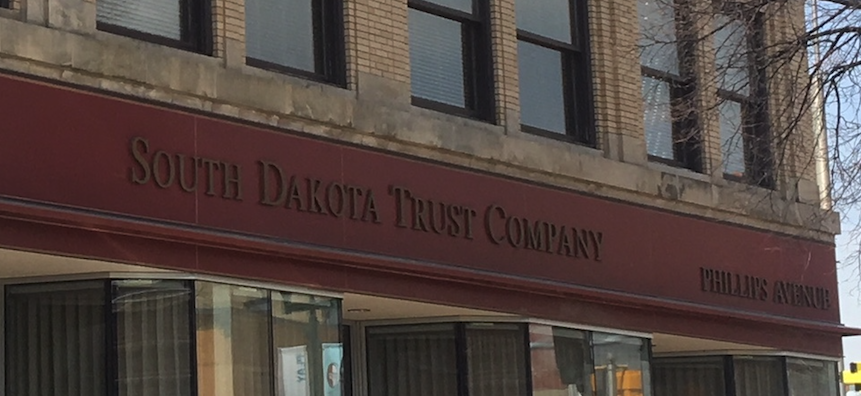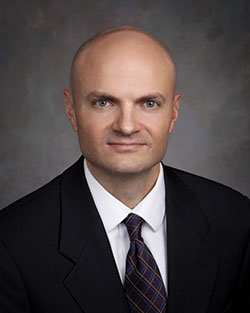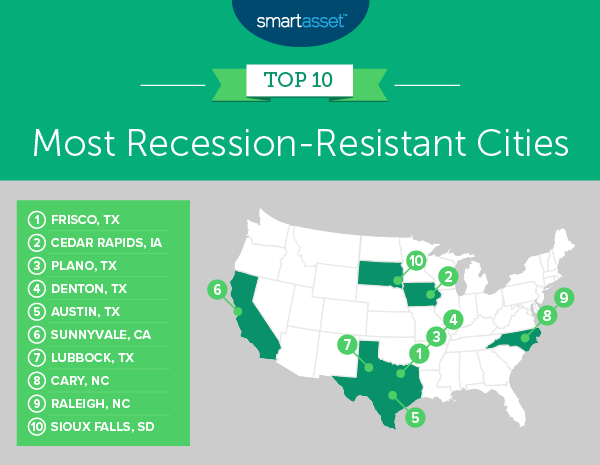Growth of South Dakota’s trust industry continues to accelerate
April 19, 2021
By Andrea Van Essen, for SiouxFalls.Business
At the time the pandemic was declared in March 2020, IRA Financial Group totaled 11 employees. One year later, the Sioux Falls office has grown to a staff of 26 and continues to hire.
“I’ve been committed to growing in the state,” said Adam Bergman, founder and CEO of the South Dakota-chartered trust company that administers retirement accounts – self-directed IRAs and solo 401(k)s.
“I’m proud of the fact that we’ve tried to do the right thing and said, ‘You know what, we’re going to be a South Dakota trust company, but we’re also going to be a part of the community, support the community, and do it the right way.’ ”
Though Bergman lives in Miami and has worked in New York, he established his business in South Dakota in 2015 to take advantage of the state’s favorable trust laws and what he considers to be a superior workforce.
“These are white-collar, educated positions, so it takes time to train, otherwise we’d be hiring even more than we already are,” he said.
“Being in a state like South Dakota has helped because it has a very educated workforce with a good basis of experience and understanding in the financial industry. It’s always hard to find good people whether you’re in New York City, LA or Omaha, but I think there’s a way better work ethic and sense of professionalism in Sioux Falls.”
And when it comes to trusts, South Dakota has built a reputation as one of the world’s most beneficial situses.
While there are numerous legal benefits to establishing a trust here, noteworthy factors include the state’s unparalleled privacy laws, its lack of income tax, and the fact that in the early 1980s Gov. Bill Janklow abolished the rule against perpetuities, making it the first state to allow unlimited duration of dynasty trusts.
Trust companies and their clients are drawn to South Dakota from across the country and the world for these benefits.
Bergman attributes a portion of his company’s recent growth to the tension of a year marked by a pandemic and a presidential election. The financial advantages and security offered by trusts have sparked the interest of many, according to Bergman and fellow industry experts.
The implications of COVID-19, both economic and health-related, spurred an urgency for people to ensure their estates were in order. Then, when Joe Biden won the presidential election and the Democrats took Congress, people began lining up to take advantage of Trump-era tax policies and exemptions while they remained intact.
“The pandemic got people thinking about their mortality, but it’s the potential change in tax law that drove people to look at South Dakota for advanced planning,” said Pat Goetzinger, a partner in Gunderson, Palmer, Nelson & Ashmore LLP, a Rapid City law firm.
He leads the firm’s business and estate planning group and also serves on the State Bar Association, the Governor’s Task Force on Trust Reform and Administration, and the South Dakota Trust Association, or SDTA.
In his role, Goetzinger works directly with both trust companies and individual clients seeking to establish trusts, and he said the past year has been incredibly busy.
“With the election and the historic exemptions that were provided for in federal tax law, we had clients who wanted to get ahead of the potential for tax laws to change and those exemptions to shrink substantially, by getting planning done in 2020,” he said.
Goetzinger said the rush has continued into 2021. While Congress continues to develop its plan for tax policy, people can still take advantage of the current exemptions.
“Clients are saying, ‘Hey, while they’re at historic highs, we want to take advantage of these planning techniques.’ They’re lining up out the door and around the block.”
As of an August 2020 report from the Division of Banking, the state was home to 103 public and private trust companies holding a total of $350 billion in assets. The number of state-chartered companies, both public and private, has been increasing steadily for years, and it shows no sign of slowing down.
Goetzinger predicts that the Division of Banking’s next report — expected sometime this spring — will show a significant increase in assets under administration. He said elections, particularly those that result in a change in party, tend to have that effect.
“It’s due in part to this race to the cliff to get stuff done. I’ve talked to companies who have laid on hundreds of trusts in the fourth quarter of 2020,” he said.
“The last time we had this sort of race to the cliff was at the end of 2012, leading up to the potential change in tax law in 2013. It was a big leap that occurred with a similar set of circumstances.”
Attracting talent to support growing industry
In order for this level of growth to be sustainable, trust companies need to attract and develop more talent.
Generally, it has been an industry that people come into later in their career after gaining experience in areas such as law, accounting or finance. That course has been shifting, however, as trust companies see the need to bring in younger officers.
“When you’re trying to work with younger people, you’re caught in that question of do you hire somebody with little to no experience and be patient and train them in hopes that they stay with you long term? Or do you hire someone that already has experience and can hit the ground running?” said Matthew Tobin, chief operating officer and legal counsel for South Dakota Trust Co.
Tobin said SDTC has been able to maintain a mix, sometimes hiring young officers for their potential but at other times hiring officers who can address a need quickly to accommodate the company’s rapid growth.
Throughout the state, higher education institutions have tried and continue to pursue trust-related programs. Dakota Wesleyan University previously offered a trust management graduate certification program that ultimately was discontinued, but Northern State University now offers a trust and financial advising graduate certificate, and the University of South Dakota School of Law is developing a legal compliance and trust administration track.
“I’m involved in some of those efforts through the SDTA, trying to develop a curriculum connected to some of our in-state schools for students who might be interested in a career in the trust field to start some of that education and training earlier. The idea is if they could be exposed to some of it in a college program, then that could lead to some internships, which could then lead to jobs,” Tobin said.
“At that point, you’re serving three needs: you’re fulfilling employers’ need for new employees, serving college graduates’ need for a job, and you’re also meeting the expectation of the state of South Dakota that through our industry we create jobs. That’s always been the large goal.”
Whether they’re joining the trust world straight out of college or later in their career, trust officers enjoy stable, well-paying jobs that allow them to develop unique, longstanding relationships with their clients.
Looking to make a career change, Alexander King joined Dacotah Bank’s Aberdeen-based trust department in September 2020. With a law degree and a background in financial planning, he said the learning curve wasn’t too steep.
“I had that exposure, some knowledge of taxes and obviously the law, so it was more about learning the processes here on the operations side and working collaboratively with other trust officers to address specific issues,” King said.
King said he enjoys meeting with people and assisting with their estate planning.
“You get to encourage them, explain the different avenues they can take and connect them with attorneys. People are looking for direction, and it helps to get them clarity. I also enjoy speaking on the phone with other trust customers and having that personal touch and communication with them, so they’re not just a number or a name,” he said.
Those in the industry enjoy an “infinite variety” as far as those they meet, thanks to the range of local, national and even global clients served, Goetzinger added.
“In a week, I’ll talk with people from international locations with their own unique needs and problems and issues that they want to use a South Dakota trust to solve, all the way to someone from Harding County who needs an estate plan to pass on the family ranch,” he said.
“Literally, they are worlds apart, but their needs are basically the same. They need something done, and there’s a role for South Dakota law to play in achieving their objectives.”
Supporting industry growth
The industry’s growth is supported by the actions of the SDTA and the Governor’s Task Force on Trust Reform and Administration.
In Goetzinger’s words, the SDTA acts as a cheerleader and advocate for the industry, while the governor-appointed task force is a policy group that looks at revisions and amendments to the state’s trust statutes.
The SDTA was established in 2015 and now boasts 55 member companies. Annual fees are $1,000 per company and go toward things like paying for a lobbyist who focuses on the education of state lawmakers, sponsoring conferences such as the Heckerling Institute on Estate Planning and putting on the association’s Fall Forum, a two-day event focused on different aspects of the industry.
The association also has a new philanthropic subcommittee that solicits donations from member companies to go toward a local area of need selected by the group. Most recently, the association has donated to Feeding South Dakota. Additionally, once COVID-19 concerns have waned, it hopes to give back to the community through in-person volunteer opportunities.
SDTA board member Abbie Everist is the director of internal audit for Kingdom Trust. She is involved in fundraising, sponsorships and continuing education through SDTA, and she said the organization offers member companies a chance to connect and learn from one another.
“We’ve seen great growth. New companies coming into the state want to get a connection with other people who they’re able to bounce thoughts and ideas off of, and just to be able to talk about the industry in general,” she said.
Antony Joffe, a founding member of the SDTA, is the president of Sterling Trustees. The company, which he started with his father in Philadelphia and then established in South Dakota in 2010, works with 150 families administering $5 billion in assets.
For a company like Sterling, the benefits of being part of the association and supporting its work are clear.
Joffe said the association was built around four key areas: marketing South Dakota as a trust situs, working with the Legislature to improve and stay ahead of competing states, supporting philanthropic efforts within the community and educating the next generation of trust officers.
Though all of those elements are critical, education stands out as the industry finds itself aging and in need of young talent.
“Having all of these companies obviously creates demand for trust officers, attorneys, accountants and everyone around the ecosystem, and that’s been a tough nut to crack,” Joffe said.
“We need that new blood coming in, that next level of trust officers coming up through the system.”

